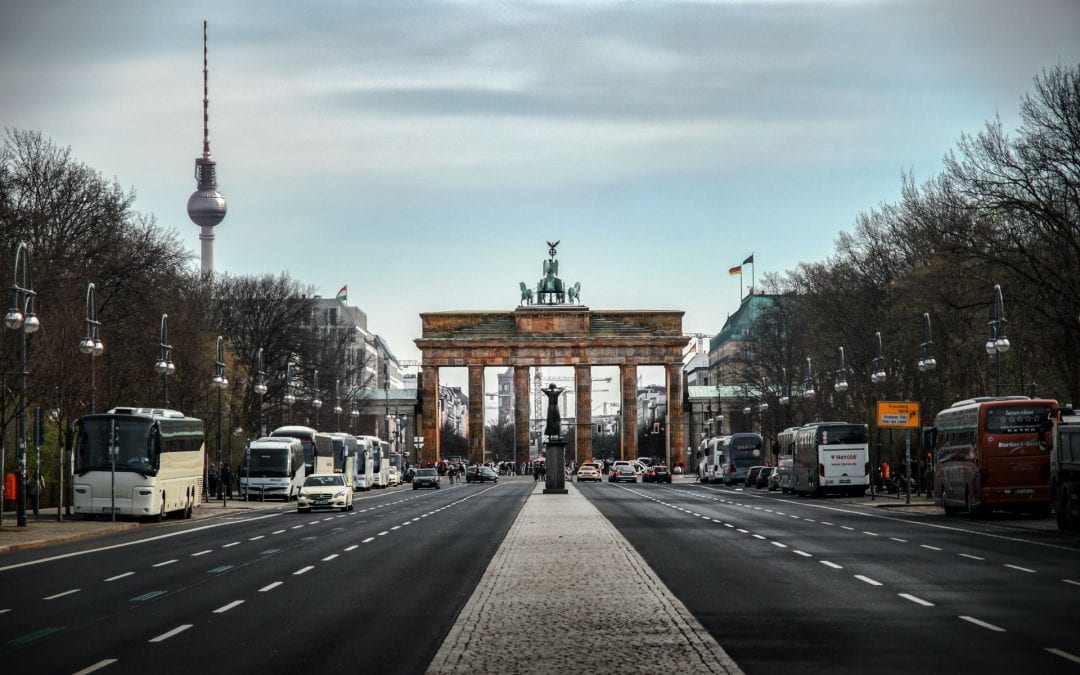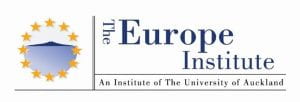By Norman Franke
Norman Franke looks at how COVID-19 is impacting Germany and what they are doing about it.
What is the situation in Germany regarding the COVID-19 crisis? Let’s start with one of the most interesting aspects: love in the time of corona. And since we want to respect the privacy of those involved, we’ll rely on the unmistakable feel of the Berlin graffiti sprayers, who know the collective psyche of the German capital better than both psychologists and trend researchers. So what do they spray? ‘Ohne Dich ist mein Leben wie das Supermarktregal für Spagetti – leer’. (‘Without you, my life is like the supermarket shelf for spaghetti – empty’). Or: ’Die Maske lässt deine Augen so schön zur Geltung kommen, Henriette’. (‘The mask makes your eyes look so beautiful, Henriette’). And: ’Angela hat recht: Jetzt 3 Wochen Urlaub mit dir auf Balkonien, Plüschbär!’ (’Angela is right: Let’s take a 3-week holiday on the balcony, teddy bear!’) All good, then, in Germany’s creative and party capital, one would think. But let’s not forget that Berlin humour is often a performatively light-hearted take on adversity. And yet, many crisis analysts have pointed to a new surge of neighbourly solidarity and creativity in order to overcome the dangers and limitations posed by the virus and the lockdown. A nice example is a balcony concert by the Hamburg film composer Ulrich K. Wendt and his friend:
The last of the above graffiti also refers to the currently high popularity of German Chancellor Angela Merkel who had been all but written off by most political observers as a ‘lame duck’ after she announced she would not seek another term as Chancellor in 2021. In the crisis, what many saw as her bland, reactive leadership style was quickly forgotten, and her positive attributes came to the fore again: her keen eye for society as a whole, her ability to listen to competent experts, and her rhetorically simple but personal communication style, which also allows a glimpse of her own feelings (and which earned her the nickname ‘Mutti Merkel’). In an appeal to the solidarity of the population, the Chancellor was able to communicate her lockdown decisions on TV well on April 16, 2020. Even many of her political opponents praised her for refraining to use military metaphors to characterise the fight against the virus and, instead, emphasise the importance of protecting the weakest in society. On April 12, German President Frank Walter Steinmeier made similarly convincing arguments in a television speech on the shutdown. High-ranking representatives of the Christian Democrats (Conservatives) and the Social Democrats, but also the Greens and the Liberals, agreed on a temporary ‘party truce’ and announced their determination to collaborate against the crisis and to keep the restrictions on fundamental rights (freedom of movement) as short and minimal as possible. DIE ZEIT, one of the major German newspapers, underpinned this show of solidarity with a reminder of the Enlightenment philosopher Immanuel Kant, his defense of individual human dignity, and his universal ethics based on personal insight and solidarious self-commitment.
On the whole, social consensus has been maintained through the lockdown and has resulted in comparatively good key figures. Compared to other similar OECD countries, Germany has had a moderate infection rate with COVID-19 and a relatively low death rate. In May, with slightly rose-tinted spectacles, the New York Times called Germany “a leader in the West in taking on the coronavirus pandemic, and then a leader in the calibrated restarting of public life”. There have been different explanations as to how this could have been achieved. An early lockdown, relatively high testing rates, a comparatively well-financed social care and medical system, with a relatively large number of intensive care beds per head of the population have been mentioned as reasons. As Central Europe was affected by the virus somewhat later than other parts of the world, Germany was also able to learn from other countries’ experiences in containing the fallout, e.g. China and Italy. The good chemistry between the pandemic chief adviser to the German government, Christian Drosten, and leading politicians may be another reason. Drosten is an internationally renowned virologist who co-identified, inter alia., the Sars virus. Drosten and Merkel are considered an improbable ‘dream team’ – they both understand science and PR (Merkel is a nuclear physicist by training).
Being a federal republic, Germany’s general guidelines for dealing with the pandemic came from Berlin, but they were implemented differently in the individual federal states. It is not surprising that the densely populated, heavily industrialised and urbanised states had larger case numbers than the predominantly rural ones. The general acceptance of lockdown measures also varied between regions and demographic groups.
The coronavirus crisis has had a significant impact on the German economy. As Germany is Europe’s most populous country as well as its biggest economy, this also has repercussions for the European and global economy. As far as the domestic sector is concerned, the German Minister of Economic Affairs provided early furlough support as well as loans and transition aids for companies; there will also be financial state participation in some at-risk companies. The government has provided direct financial aid, e.g. for laptops for schoolchildren who receive distance learning. The list of applications for financial support is long, from Lufthansa to Bavarian beer gardens to kindergartens. German share prices and real estate values are relatively stable; there is cautious optimism that a dramatic recession, like the one in 1929/30 that was an important factor in the rise of Fascism, can be prevented. On June 4, the German government launched a 130 billion euro ‘Kraftpaket’ (lit. ‘power package’) to reboot the domestic economy.
Germany is one of the countries that benefits most from a common European market and from the euro. The expectations of neighbouring countries in the crisis are correspondingly high. In April and May 2020, there was a lot of public and political discussion about the introduction of ‘Eurobonds’. Left-wing and liberal economic experts wanted to prevent southern and eastern European populists from distributing financial aid primarily to their own clientele without responsibility to any EU institution. Conservatives have objected that some southern European countries have a higher per capita wealth than Germany (which is mainly the result of more people owning their own property than in Germany; and has hardly any monetary benefits at state level in the current crisis). The German tabloid press also fueled old national stereotypes and resentments, which is particularly concerning in the light of the recent rise of extreme right-wing parties like the Alternative for Germany party (AfD). The AfD, which includes dangerous fascist demagogues in its ranks, received well over 20% in the last elections in some eastern federal states (European elections 2019, Saxony: 25.3%). Neither was there a consensus about Eurobonds in the wider European Union between the fiscally strict (Finland, The Netherlands, Estonia) and the more relaxed countries (Italy, Spain). As a result, Germany and France went ahead with a joint 540 billion euro investment package. Initiated by the former German minister of defence, Ursula v. d. Leyen, the EU came up with its own credit and investment programme with a volume of up to 1 trillion euros. There is wide agreement in both Germany and most other parts of Europe that economic regeneration can be best achieved through Keynesian initiatives (deficit spending) but that it must also take into account the other current crisis – the climate crisis.
Lastly, another aspect of the crisis has occupied the German public imagination and think-tanks in recent weeks: How can the crisis be used to reform social and economic institutions and practices, but also environmental policy? Many agree that applause for essential workers (especially lower wage earners such as nurses, till operators, courier drivers) is good, but applause and higher wages and job security would be better. More controversial is the discussion about proposals for a universal basic income and the long-term restructuring of the economy towards more sustainability and climate compatibility. As the Berlin graffiti sprayers submit: ‘Wär’ die Erde ne Bank, ihr hättet sie längst gerettet’ (‘If Earth were a financial institution, you would have saved it a long time ago’) and ‘Um zu bleiben wie es ist, muss sich alles radikal ändern’ (‘In order to stay as it is, everything has to change radically.’)
For more information on COVID-19, head to the Ministry of Health website.
Dr Norman Franke is a New Zealand based Research Fellow at the University of Newcastle, NSW. He has published widely on 18th-century literature, as well as on German-speaking exile literature (Albert Einstein, Else Lasker-Schüler, Karl Wolfskehl), and on eco-poetics. Norman is also a poet and documentary filmmaker.
This article is published as part of a series commissioned by the Europe Institute at the University of Auckland.
For more on the Europe Institute, click here.
Disclaimer: The ideas expressed in this article reflect the author’s views and not necessarily the views of The Big Q.
You might also like:
What happens when a nation’s leader is a doctor?
How did Czechs wear face masks when there weren’t any available?


